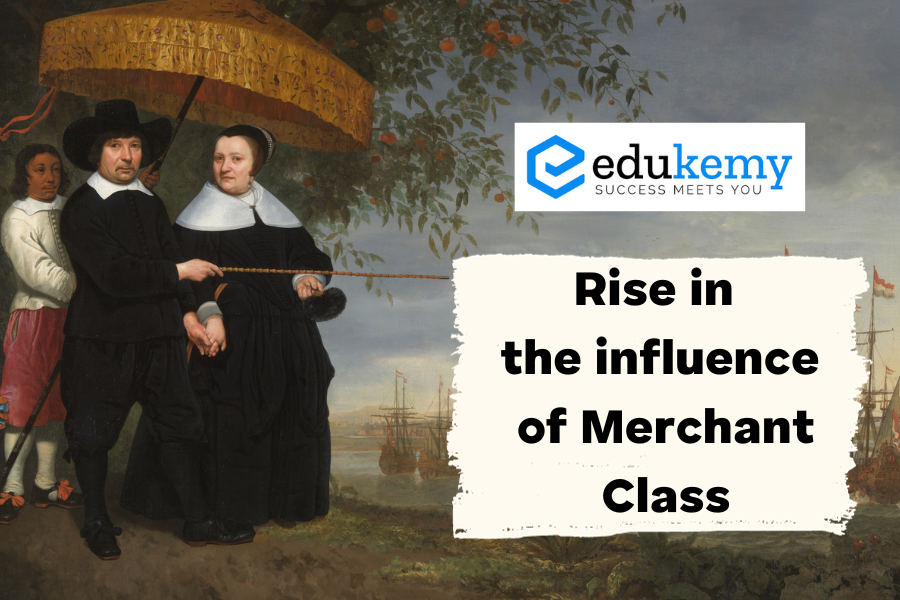
The revival of trade and the emergence of towns led to the rise of a new social class known as the Middle Class, predominantly comprised of Merchants. This transformation brought about significant changes in the social, economic, and political landscape:
- Formation of the Middle Class:
- The burgeoning trade and the growth of towns gave rise to the Middle Class, which was primarily composed of Merchants. This class played a pivotal role in the urbanization and economic development of the time.
- Towns Gaining Independence:
- Towns gradually gained autonomy from feudal control. They established their governance systems, militia, and judicial institutions. This independence allowed for greater economic and social mobility.
- Freedom of Occupation:
- Unlike in feudal settings, individuals in towns were not bound to the land. They had the freedom to choose their occupations and move freely, contributing to increased social mobility.
- Attraction for Peasants:
- The opportunities offered by towns, such as freedom from serfdom, drew peasants from villages. The urban environment provided a more dynamic and diverse economic landscape compared to rural settings.
- Serfs in Towns:
- Serfs who migrated to towns found themselves freed from the constraints of feudal obligations. They became the essential workforce for Merchants, contributing to the growth of urban industries.
- Shift to Money-Based Economy:
- Towns operated on a cash-based economy, with currency becoming the primary medium of exchange. This transition reduced the reliance on land as the main source of power and wealth.
- Increased Influence of Merchants:
- With the surge in trade, Merchants saw substantial profits. Their economic prowess translated into heightened influence not only in the economic sphere but also in the social and political realms.
- Impact of Eastern Trade:
- Trade with the East introduced novel goods to Europe, capturing the interest of the masses. The demand for these exotic products surged, further enhancing the influence and wealth of Merchants.
- Merchant Influence on Politics:
- Over time, Merchants began to exert influence not just in economic matters but also in politics. They played a role in shaping the governance and policies of towns, reflecting their growing significance.
The rise of the Merchant class was a pivotal development in medieval Europe, reshaping economic structures and power dynamics. Their influence extended beyond commerce, leaving a lasting imprint on the social, economic, and political fabric of the emerging urban centres.
Contents
- 1 Frequently Asked Questions (FAQs) about Rise in the influence of Merchant Class
- 1.1 1. FAQ: What factors have contributed to the rise in the influence of the Merchant Class?
- 1.2 2. FAQ: How has technology played a role in empowering the Merchant Class?
- 1.3 3. FAQ: What impact has the Merchant Class had on traditional power structures?
- 1.4 4. FAQ: How does the Merchant Class contribute to social and economic development?
- 1.5 5. FAQ: Are there potential challenges associated with the growing influence of the Merchant Class?
- 2 In case you still have your doubts, contact us on 9811333901.
Frequently Asked Questions (FAQs) about Rise in the influence of Merchant Class
1. FAQ: What factors have contributed to the rise in the influence of the Merchant Class?
Answer: The Merchant Class has experienced a surge in influence due to globalization, technological advancements, and the shift towards a more service-oriented economy. The ability to engage in international trade, harness digital platforms for business expansion, and cater to evolving consumer demands has propelled the Merchant Class to prominence.
2. FAQ: How has technology played a role in empowering the Merchant Class?
Answer: Technology has revolutionized the way business is conducted, providing the Merchant Class with tools for efficient communication, online commerce, and data analytics. E-commerce platforms, digital marketing, and fintech solutions have not only streamlined operations but have also opened new avenues for merchants to reach a global audience, thereby enhancing their influence.
3. FAQ: What impact has the Merchant Class had on traditional power structures?
Answer: The rise of the Merchant Class has disrupted traditional power structures by introducing economic dynamism. As merchants accumulate wealth and influence through successful business ventures, they often become key players in shaping policies and driving economic growth. This shift challenges the historically dominant roles of aristocracy and bureaucracy.
Answer: The Merchant Class plays a pivotal role in fostering economic development by creating job opportunities, stimulating innovation, and contributing to tax revenues. Additionally, their philanthropic efforts and investments in community development projects often have a positive impact on social well-being, further solidifying their influence in society.
5. FAQ: Are there potential challenges associated with the growing influence of the Merchant Class?
Answer: While the rise of the Merchant Class brings about economic vitality, it also raises concerns about wealth inequality and potential monopolies. Balancing the influence of the Merchant Class with fair regulatory frameworks becomes crucial to ensure that economic benefits are distributed equitably and that their power does not undermine democratic principles.
In case you still have your doubts, contact us on 9811333901.
For UPSC Prelims Resources, Click here
For Daily Updates and Study Material:
Join our Telegram Channel – Edukemy for IAS
- 1. Learn through Videos – here
- 2. Be Exam Ready by Practicing Daily MCQs – here
- 3. Daily Newsletter – Get all your Current Affairs Covered – here
- 4. Mains Answer Writing Practice – here

